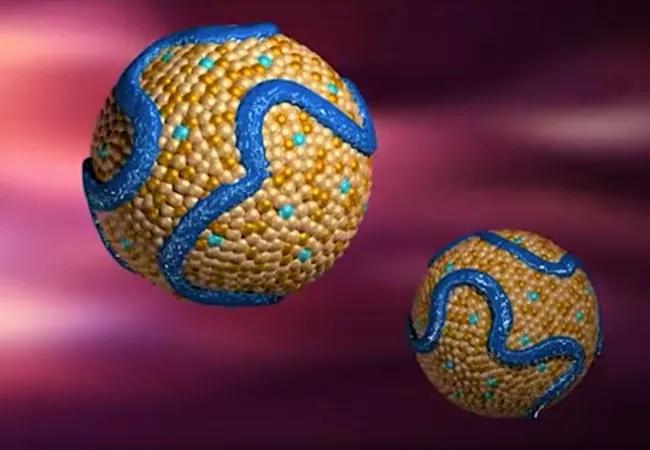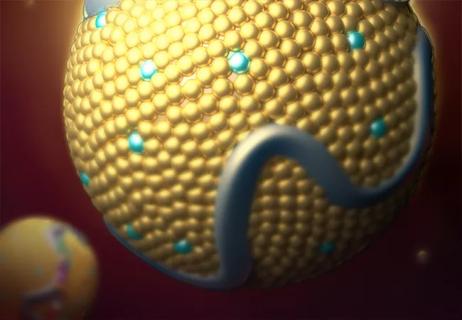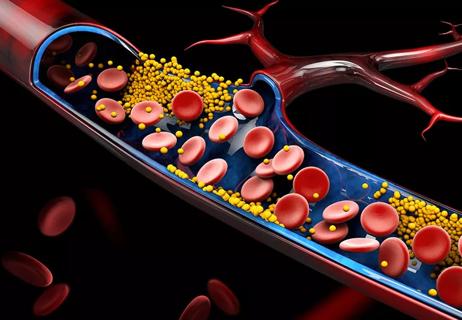Findings bolster the oral drug as an option for primary and secondary prevention

The non-statin lipid-lowering medication bempedoic acid (Nexletol®) has demonstrated a significant reduction in the risk of cardiovascular events in a large outcomes study of statin-intolerant patients treated for primary or secondary cardiovascular prevention.
Advertisement
Cleveland Clinic is a non-profit academic medical center. Advertising on our site helps support our mission. We do not endorse non-Cleveland Clinic products or services. Policy
Results of the global CLEAR Outcomes trial were reported in a late-breaking clinical trial presentation at the American College of Cardiology annual scientific session and simultaneously published online in the New England Journal of Medicine.
“These findings add bempedoic acid to the group of LDL cholesterol (LDL-C)-lowering medications that have shown clinically meaningful cardiovascular benefits,” says the study’s first author, Steven Nissen, MD, Chief Academic Officer of Cleveland Clinic’s Heart, Vascular & Thoracic Institute. “They support this drug as an effective therapy for the 7% to 29% of patients who report statin intolerance, which can be a vexing clinical challenge. This study establishes bempedoic acid as an effective approach to ensure that this large group of patients benefit from the protective effects of LDL-C reduction.”
“These data reinforce the convincing body of evidence that reduction of LDL cholesterol meaningfully diminishes the risk of cardiac events in high-risk patients,” adds co-author A. Michael Lincoff, MD. “And they show bempedoic acid to be an important therapeutic option for patients who cannot tolerate statin therapy.”
Bempedoic acid was approved by the FDA for LDL-C reduction in 2020, but its effects on clinical outcomes were not previously studied. The medication was developed specifically for use in patients with statin intolerance. It has a mechanism of action similar to that of statins but is activated in the liver rather than in peripheral tissues, which appears to reduce its potential for the adverse muscle effects experienced by some patients who try to take statins.
Advertisement
CLEAR Outcomes was a double-blind clinical trial that randomized 13,970 adults to oral bempedoic acid 180 mg/day or matching placebo. Participants had a prior cardiovascular event or clinical features that put them at high risk for a cardiovascular event. Prior to enrollment, patients had to have reported statin intolerance due to an adverse effect that began or increased during statin treatment and resolved or improved after discontinuation.
The primary end point was a composite of death from cardiovascular causes, nonfatal myocardial infarction (MI), nonfatal stroke or coronary revascularization.
Key study outcomes included the following:
Advertisement
In their study report in the New England Journal of Medicine, the investigators note that bempedoic acid’s effects were comparable to those of other recent trials evaluating non-statin LDL-C-lowering therapies. They add that “the time-averaged reduction in LDL cholesterol of 22.0 mg/dL would be expected to result in approximately the reduction observed in cardiovascular events.”
They also report that bempedoic acid reduced high-sensitivity C-reactive protein (hsCRP) levels by a median of 21.6% from baseline over six months of therapy, an effect not seen in trials of PCSK9 inhibitors or ezetimibe monotherapy. “Whether the reduction in hsCRP with bempedoic acid contributed to the observed benefits will require further study,” they write.
“Bempedoic acid showed good safety, and its benefit-to-risk ratio was very good,” Dr. Nissen observes. “This drug now represents a very viable alternative for patients who need their cholesterol to be lowered but cannot or will not take statins.”
He notes that bempedoic acid offers the advantage of oral administration and, when taken in its combination formulation with ezetimibe, can reduce LDL-C by 35% to 40%. “That’s about the same reduction as with a moderate-intensity statin,” he says. “Patients can get a statin-like effect on their LDL cholesterol without taking a statin.”
“Bempedoic acid provides an important therapeutic option for patients who cannot tolerate statins or who are maximized on their statin and cannot take PCSK9 inhibitors,” adds study co-author Leslie Cho, MD, Co-Section Head of Preventive Cardiology at Cleveland Clinic.
Advertisement
The study was coordinated by the Cleveland Clinic Coordinating Center for Clinical Research (C5Research) and funded by Esperion Therapeutics, which markets bempedoic acid.
Advertisement
Advertisement

Phase 3 TANDEM study may help pave way to first approval of a CETP inhibitor

Reassurance from the lipid outcomes trial with the highest percentage female enrollment to date

Tech-assisted self-selection concurred with clinician-assessed eligibility in >90% of cases

Robust reductions in cardiac events seen in high-risk patients without prior events

Effect on gut microbiome emerges as another benefit of statin therapy

Randomized controlled study undercuts unsubstantiated ‘heart health’ claims

First-in-human phase 1 trial induced loss of function in gene that codes for ANGPTL3

Cleveland Clinic pioneers a new paradigm in cardiovascular care delivery